In today’s cloud-driven era, understanding the differences between the top cloud providers is crucial for businesses, developers, and IT professionals. Amazon Web Services (AWS), Microsoft Azure, and Google Cloud Platform (GCP) dominate the cloud market, each offering unique advantages, pricing models, and services. Whether you are a beginner exploring cloud computing or a professional aiming to choose the right cloud for your enterprise, grasping these differences is essential.
At CuriosityTech , we have been guiding tech enthusiasts and professionals through cloud technologies for years, providing in-depth tutorials, comparisons, and hands-on projects. Our goal is to simplify complex cloud concepts and make learning accessible and practical.
1. Market Presence and Popularity
AWS, launched in 2006, is the pioneer of cloud computing and has the largest market share. Azure, integrated with Microsoft’s ecosystem, appeals strongly to enterprises already using Microsoft products. GCP, backed by Google’s robust infrastructure, focuses heavily on data analytics and AI-driven solutions.
| Cloud Provider | Launch Year | Market Focus | Popular Users |
| AWS | 2006 | Broad enterprise adoption | Netflix, Airbnb, NASA |
| Azure | 2010 | Microsoft ecosystem & hybrid cloud | HP, Samsung, Adobe |
| GCP | 2008 | AI, ML, big data analytics | Spotify, Snapchat, PayPal |
Infographic Idea:
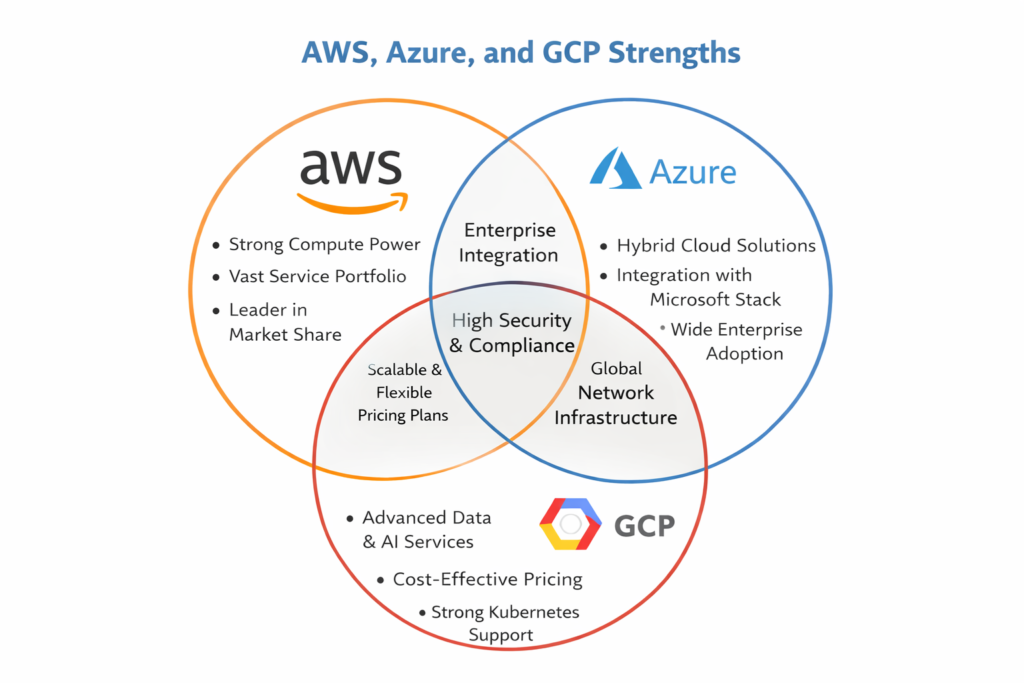
A Venn diagram showing overlapping and unique strengths of AWS, Azure, and GCP.
2. Compute Services
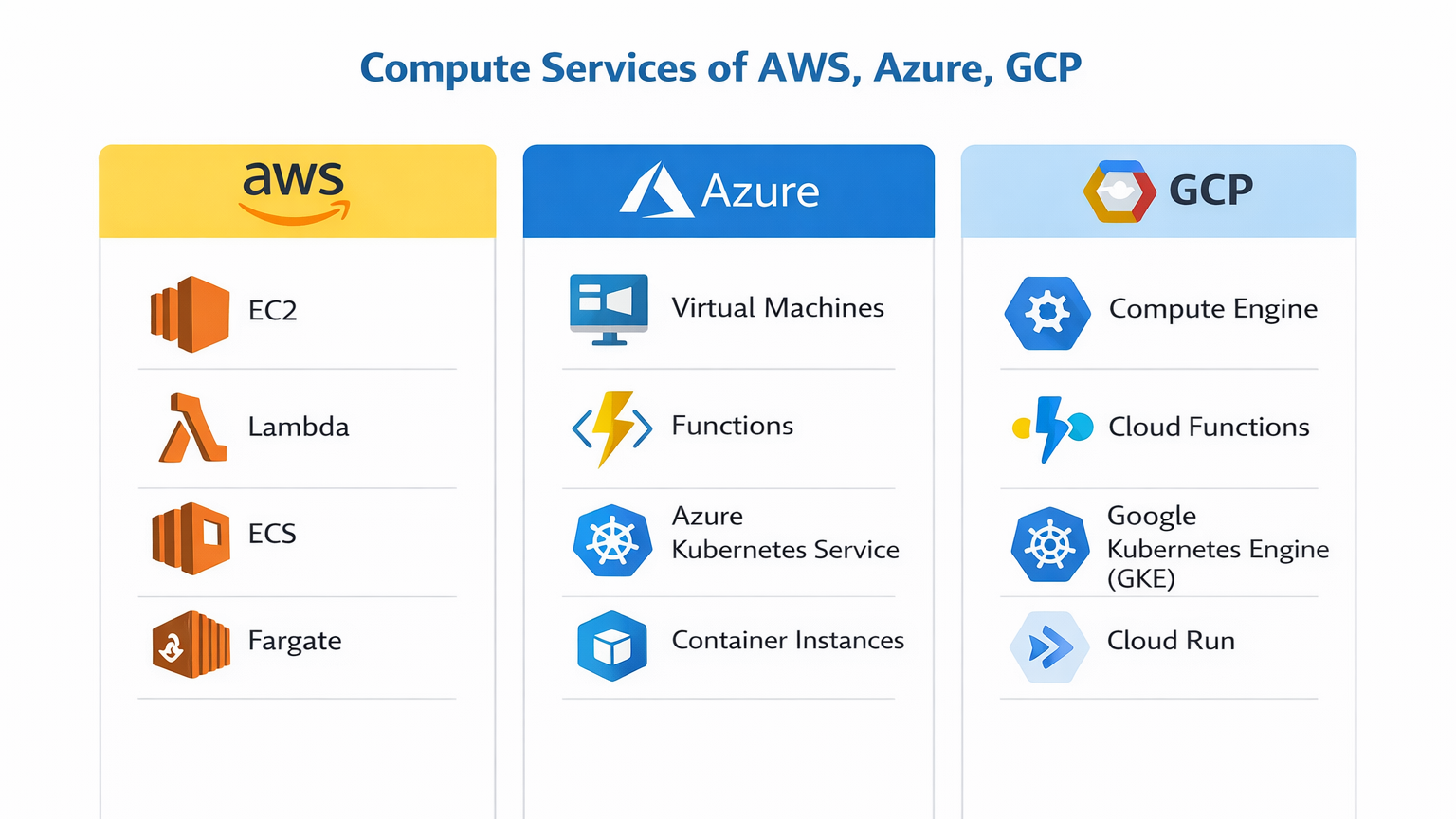
Compute power is the backbone of cloud platforms. Each provider offers virtual machines (VMs), container services, and serverless computing but with distinct approaches.
- AWS: EC2 instances offer flexibility in OS, CPU, memory, and networking. AWS Lambda provides serverless execution for event-driven applications.
- Azure: Virtual Machines (VMs) integrate seamlessly with Active Directory and other Microsoft tools. Azure Functions handle serverless operations.
- GCP: Compute Engine offers high-performance VMs, and Cloud Functions allow serverless computing with easy integration into Google services.
Human Insight: Choosing between these often comes down to the kind of workloads you run. Enterprises running Windows-heavy applications may lean toward Azure, while startups focusing on AI-powered apps may prefer GCP.
3. Storage & Database Services
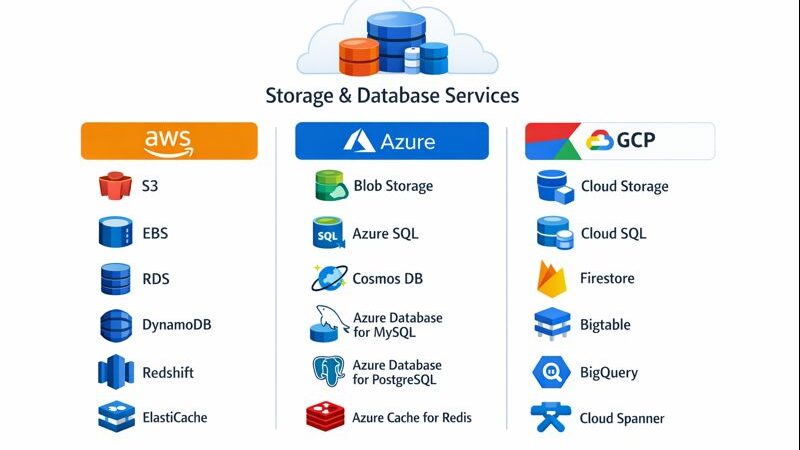
Data storage and database management are pivotal in cloud architecture:
- AWS: S3 for object storage, EBS for block storage, and RDS for managed relational databases.
- Azure: Blob storage for unstructured data, Managed Disks, and SQL Database for relational storage.
- GCP: Cloud Storage for objects, Persistent Disks, and Cloud SQL for relational needs.
Tip from CuriosityTech : Evaluate not just the storage cost but also data transfer charges and latency when selecting your provider. Small differences can scale up into significant savings in large deployments.
4. Networking & Global Reach
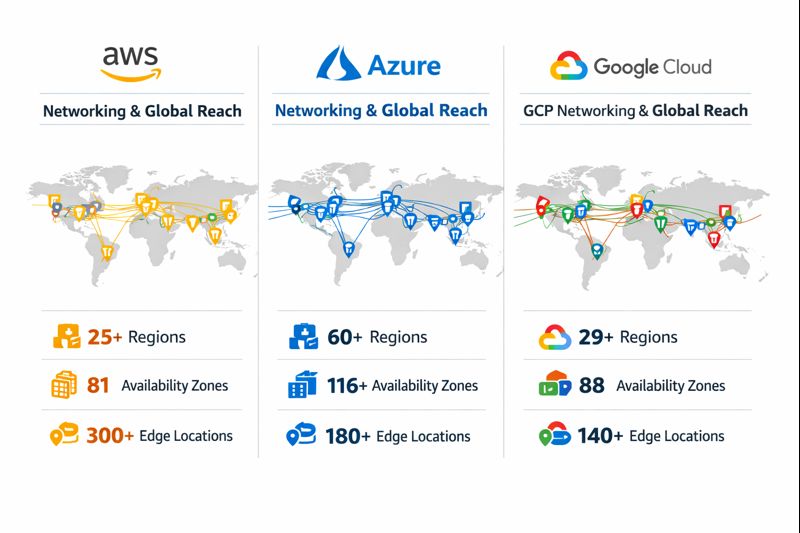
AWS leads with 30+ global regions and extensive Availability Zones. Azure offers similar coverage with hybrid solutions, while GCP’s strong suit is its high-speed backbone network that optimizes AI and data-heavy applications.
Table: Global Infrastructure Comparison
| Provider | Regions | Availability Zones | Special Network Features |
| AWS | 30+ | 99+ | Direct Connect, Global Accelerator |
| Azure | 28 | 60+ | ExpressRoute, Traffic Manager |
| GCP | 35+ | 100+ | Premium Tier Network, Cloud CDN |
5. Pricing Models
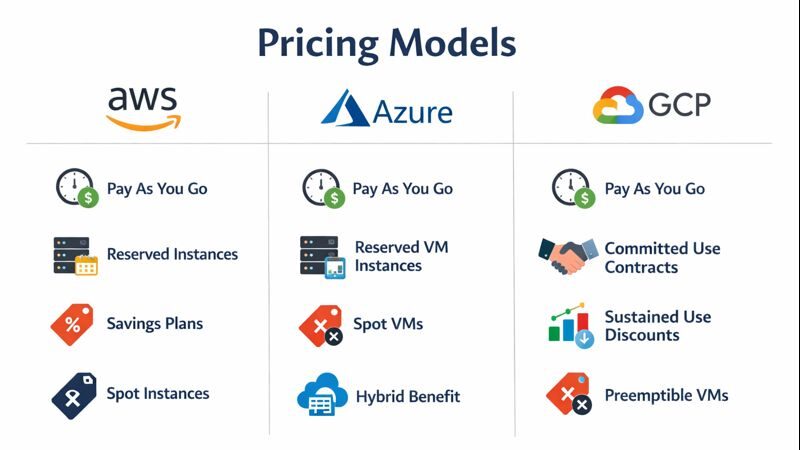
Pricing is complex and depends on usage, compute, storage, and data transfer:
- AWS: Pay-as-you-go, Reserved Instances, Savings Plans.
- Azure: Pay-as-you-go, Reserved VM Instances, Hybrid Benefit for Windows Server.
- GCP: Pay-per-second billing, Committed Use Discounts, Sustained Use Discounts.
Practical Insight: GCP’s per-second billing can be attractive for short-lived workloads, while AWS’s Reserved Instances are more cost-effective for predictable long-term workloads.
6. Security & Compliance
All three providers offer enterprise-grade security, encryption, identity management, and compliance certifications. Azure shines in hybrid solutions with strong Active Directory integration. AWS has extensive compliance options, and GCP focuses on AI-driven threat detection.
7. AI & Machine Learning Capabilities
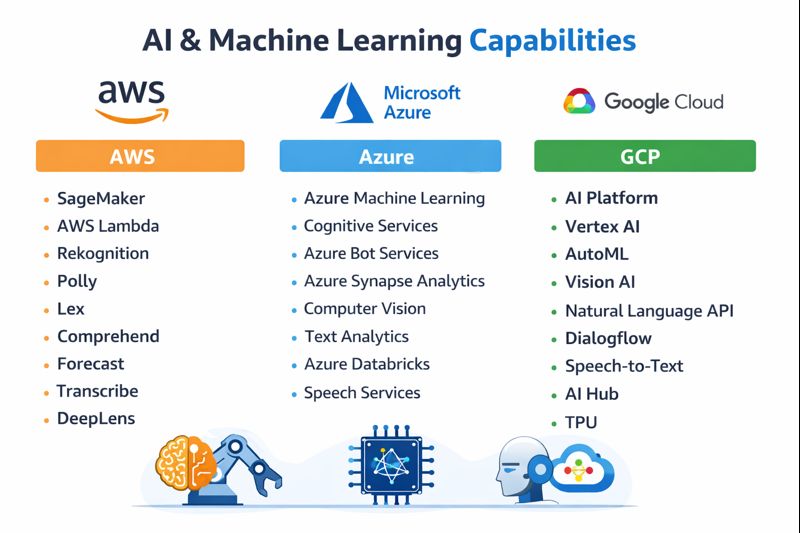
If your projects involve AI, machine learning, or big data analytics:
- AWS: SageMaker for ML, Rekognition for image/video analysis.
- Azure: Azure ML, Cognitive Services for vision, speech, and language.
- GCP: Vertex AI, BigQuery ML, TensorFlow integration.
Curiosity Tech Highlight: We have hands-on tutorials demonstrating how to deploy AI models seamlessly across AWS, Azure, and GCP, making it easier for learners to experiment in real-world scenarios.
Conclusion
Choosing the right cloud platform depends on your specific business requirements, existing technology stack, and skillset. AWS provides unmatched maturity and market reach, Azure excels for Microsoft-centric enterprises, and GCP shines in data analytics and AI capabilities.
At Curiosity Tech we emphasize exploring hands-on labs and projects to gain practical exposure. Understanding the differences is just the first step; implementation experience truly sets you apart.
Pro Tip: Begin with small projects on multiple platforms, then choose the one that aligns best with your technical needs and budget.



